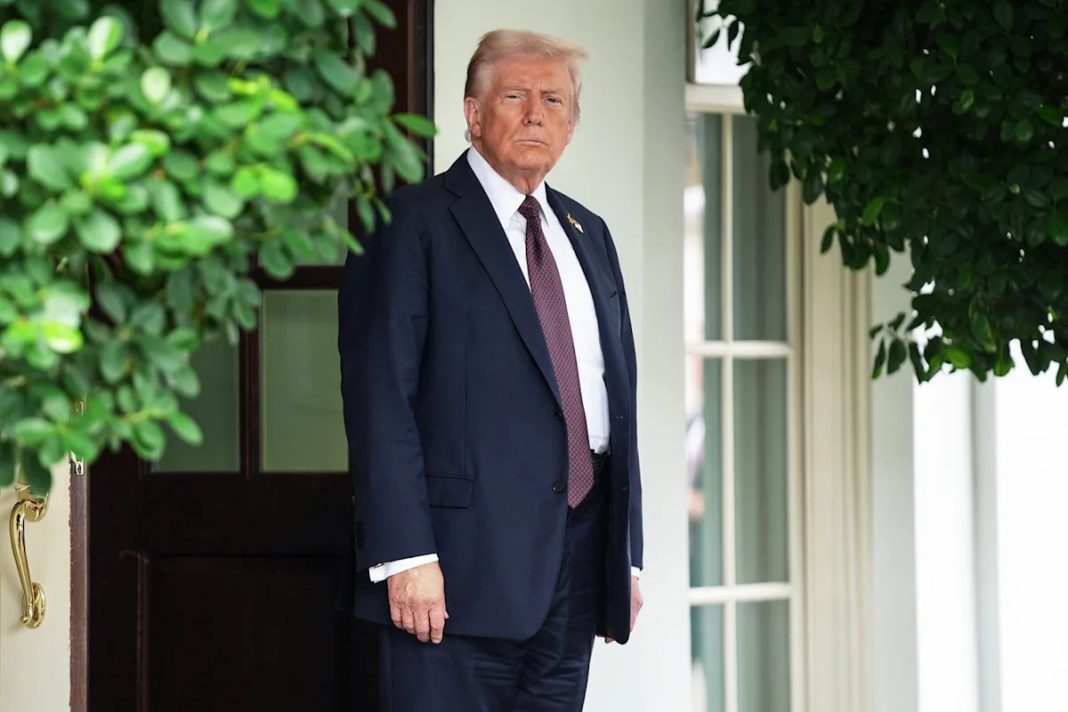When he was a lawyer in the Reagan White House in the 1980s, John Roberts quipped in a memo that “only Supreme Court justices and schoolchildren are expected to and do take the entire summer off.” But the court has done a fair amount of work this summer, much of it helpful to the Trump administration’s moves to consolidate power in the Republican White House.
When the justices take the bench next week to start their new term, they’ll be fresh off a string of significant shadow docket decisions — often made with little or no explanation from the majority that has largely backed the administration in President Donald Trump’s second term.
Dismantling due process
The court kicked things off in early July, with an order backing the administration’s rapid effort to deport noncitizens to countries to which they have no ties. The court did so over a dissent authored by Justice Sonia Sotomayor, which accused the majority of giving short shrift to due process while sending a signal that “the administration has the Supreme Court on speed dial.”
The administration would continue to call on the court over the summer, and the court would answer.
Dismantling education
Sotomayor led the Democratic appointees in dissent two weeks later, when the majority approved the administration’s efforts to dismantle the Education Department. She wrote that the majority, which gave no explanation for its order, “is either willfully blind to the implications of its ruling or naive, but either way the threat to our Constitution’s separation of powers is grave.”
Dismantling the Fourth Amendment
Backing the government’s roving immigration patrols, the majority freed officials from having to comply with a lower court order that had blocked them from overly relying on racial profiling to make stops in Los Angeles.
Writing again for the Democratic-appointed minority, Sotomayor observed that the Fourth Amendment’s historical protections from arbitrary government interference “may no longer be true for those who happen to look a certain way, speak a certain way, and appear to work a certain type of legitimate job that pays very little.” She called the majority’s move “unconscionably irreconcilable with our Nation’s constitutional guarantees.”
Dismantling agency independence
The court has also been helping Trump assert more control over independent federal agencies. Despite long-standing law and precedent protecting removals, the majority has been endorsing such firings on the shadow docket.
Justice Elena Kagan has been criticizing the court’s use of the docket to upend the structure of American government. In a recent example, she wrote that the court’s “emergency docket should never be used, as it has been this year, to permit what our own precedent bars.” She added that it shouldn’t be used “to transfer government authority from Congress to the President, and thus to reshape the Nation’s separation of powers.”
On top of letting Trump fire Rebecca Slaughter from the Federal Trade Commission in that order, the court also said it will formally consider this term whether to overrule that long-standing precedent, Humphrey’s Executor, which had protected agency members for the past 90 years.
Dismantling foreign aid
Continuing the theme of consolidating Trump’s power, the majority recently let the administration withhold $4 billion in congressionally approved foreign aid, in what the Democratic-appointed minority decried as the court’s latest blow to the separation of powers between the branches of government.
That order, issued last week, provided the latest example of the court taking significant action on the shadow docket, prompting Kagan to again critique both what the court did and how it did it. Noting that the majority’s order has the effect of letting the executive branch avoid delivering billions of dollars “that will now never reach its intended recipients,” she wrote that the standard for emergency relief that the majority chose to grant in that case “is supposed to be stringent,” but that Trump “has not come close to meeting it here.”
Subscribe to the Deadline: Legal Newsletter for expert analysis on the top legal stories of the week, including updates from the Supreme Court and developments in the Trump administration’s legal cases.
This article was originally published on MSNBC.com

